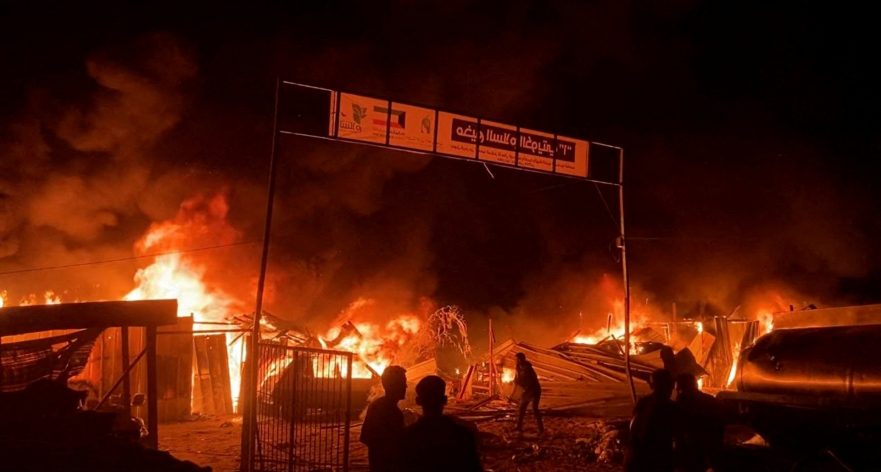In a recent episode of PalCast, available on Apple & Spotify, Palestinian professor Eman Abdelhadi joined co-hosts Yousef, Helena, and Tony to discuss the student movement in the United States and its profound impact on both domestic and global politics. Abdelhadi, an academic, activist, and writer, brought her unique perspective to the conversation, shedding light on the ongoing struggle for justice and recognition faced by Palestinians.
Abdelhadi emphasized that the current student movement in the US is not an isolated phenomenon. Instead, it builds upon a rich history of activism within the country. From civil rights to anti-war protests, students have consistently played a pivotal role in shaping American society. Now, as the movement reaches its climax, it continues to draw attention to critical issues, including the plight of Palestinians.
During the podcast episode, the Israeli invasion of Rafah took center stage. Located in the southern Gaza Strip, Rafah has been a flashpoint for violence and displacement. As Israeli forces advanced into the city, an estimated 900,000 Palestinians found themselves uprooted once again. The invasion was met with international warnings, yet the tragic consequences unfolded nonetheless.
The situation in Rafah escalated rapidly. Three distinct massacres occurred after Israel’s invasion began. These events left a devastating impact on the lives of countless Palestinians. Families were torn apart, homes destroyed, and hope shattered. The world watched as the streets of Rafah bore witness to unimaginable suffering.
As the crisis unfolded, the UN Security Council faced mounting pressure to respond. Its decisions would shape public opinion and influence diplomatic relations worldwide. Yet, despite urgent appeals, the Council’s actions remained insufficient. The voices of the displaced and the grieving struggled to be heard within its chambers.
The tragedy in Rafah also highlights the delicate balance of global politics. Western countries, while advocating for human rights and justice, have often supported Israel—a stance that some view as hypocritical. Meanwhile, the Middle East remains a tinderbox of tensions, with the fate of Palestine at its core. Regional stability hangs in the balance, and the streets of Rafah bear witness to this precarious equilibrium.
Eman Abdelhadi’s insights are invaluable. As an assistant professor and sociologist at the University of Chicago, she delves into the complexities of American Muslim communities. Her co-authorship of “Everything for Everyone: An Oral History of the New York Commune, 2052–2072” underscores her commitment to understanding the intersections of gender, sexuality, religion, and politics.
The Tent Massacre serves as a stark reminder that the struggle for justice is far from over. As listeners, we have a responsibility to engage with these narratives, amplify marginalized voices, and advocate for change. By tuning in to podcasts like PalCast, we contribute to a more informed and compassionate world—one where the streets of Rafah are not forgotten.
Listen to the full episode, available on Apple & Spotify, and join the conversation. Let us honor the resilience of the Palestinian people and work towards a future where tents become symbols of hope, not sites of tragedy.


